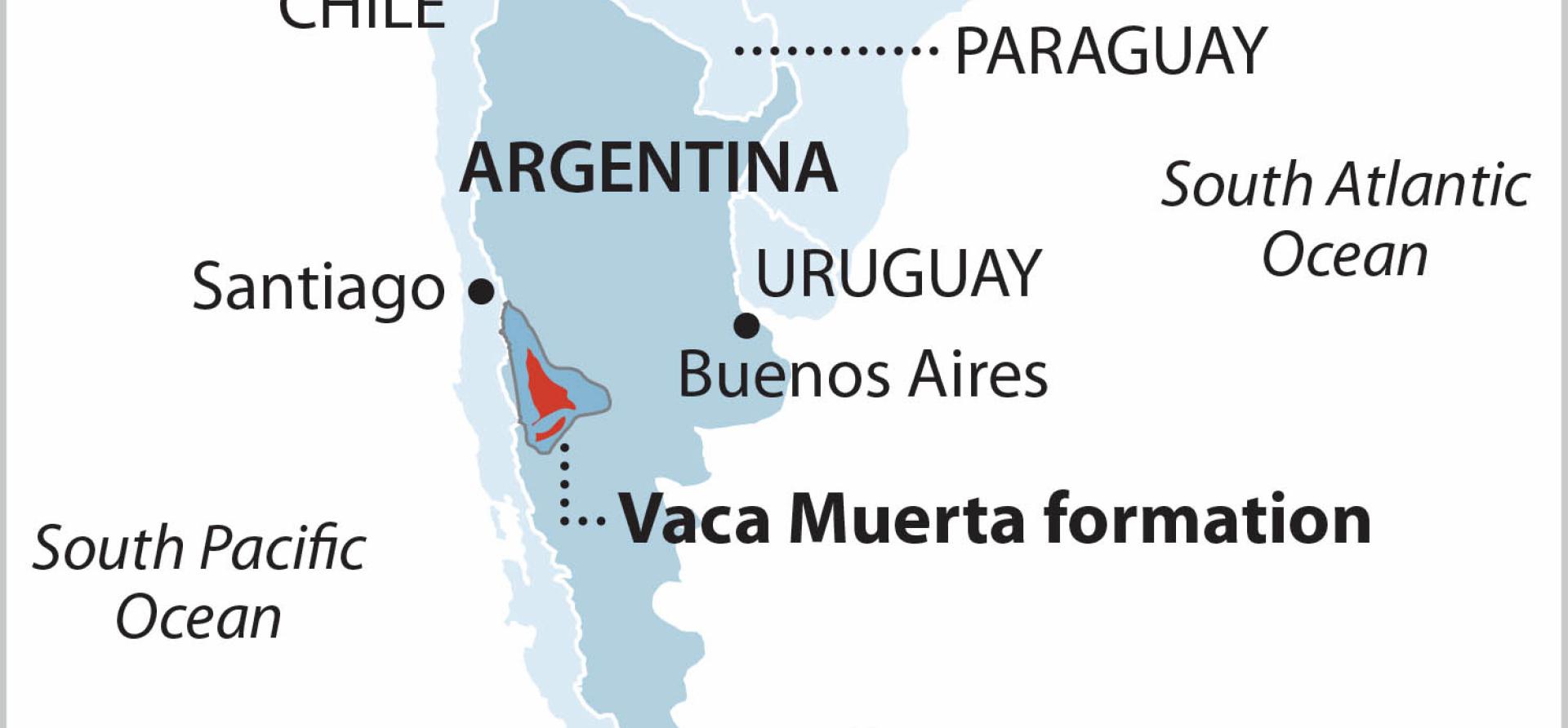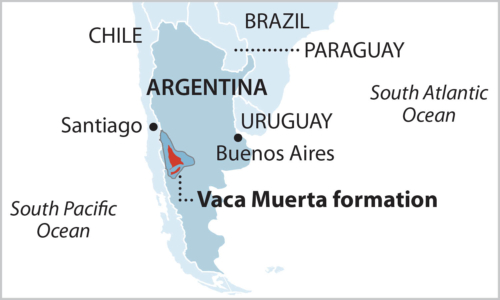IEEFA Argentina: Vaca Muerta railway, essential for development plans, placed on hold

 News came out late in April that the Argentine government had failed to achieve critical mass to move forward with a rail line needed to move oil and gas from Vaca Muerta to Buenos Aires ports. Foreign companies with contracts to develop oil and gas balked at the opportunity to put real money behind the infrastructure needed to be able to bring product to market. They failed to commit to minimum future cargo volumes, undermining plans to raise capital and further clouding the financial future of President Mauricio Macri’s energy plan.
News came out late in April that the Argentine government had failed to achieve critical mass to move forward with a rail line needed to move oil and gas from Vaca Muerta to Buenos Aires ports. Foreign companies with contracts to develop oil and gas balked at the opportunity to put real money behind the infrastructure needed to be able to bring product to market. They failed to commit to minimum future cargo volumes, undermining plans to raise capital and further clouding the financial future of President Mauricio Macri’s energy plan.
Only eight of the many oil and gas companies operating in Neuquén Province, home to most of Vaca Muerta, made any commitments for future cargo. Some global oil and gas giants, such as ExxonMobil, Tecpetrol, and Wintershall, made no future cargo commitments at all. Lackluster financial support for the train is another signal that foreign partners have found the cost structure of development in Argentina too steep given current market conditions.
Argentina’s infrastructure – including railways, roads, and pipelines – is inadequate to support the government’s ambitious energy plan. Infrastructure development is paramount in Argentina, and needs to address “limited or non-existent railway or road connectivity.” The shortage of adequate roads, pipelines, and railways threatens to create bottlenecks that would keep oil and gas from markets. Potential capacity constraints have been cited by numerous foreign oil and gas companies as reasons for their cautious investment stance.
ARGENTINA’S CONUNDRUM: NO RAILROAD TO SUPPORT DEVELOPMENT, NO DEVELOPMENT TO SUPPORT THE RAILROAD.
Plans to build the so-called Vaca Muerta train have been postponed repeatedly. The government had already delayed the cargo commitment process numerous times throughout the year. It hoped to secure ten-year commitments of cargo from oil and gas companies that would provide capital or implied financial support for the Norpatagónico railway, commonly referred to as the Vaca Muerta train. The government needed commitments for at least four million tons of cargo volume over ten years to make the project financially viable. It received only 3.3 million tons in commitments.
The PPP program stalled over the past six months due to increased country risk and rising interest rates in Argentina.
The government had initially hoped to use the broad framework of its multi-faceted Public Private Partnership (PPP) to build the railroad. But the PPP program stalled over the past six months due to the increased country risk and higher cost of financing projects in light of rising interest rates in Argentina. In December 2018, the Macri administration officially suspended US$ 21 billion of investments in projects planned through PPPs between 2019 and 2023, announcing that future PPPs would be resumed only when Argentine bond yields were “normalized,” according to the Ministry of Transport. Forty infrastructure projects were put on hold last December.
The cost to build the railroad is estimated at US$ 780 million. An additional US$ 500 million will be needed to route the train around towns, rather than through them. Local leaders are concerned that the railway may divide their towns.
A FURTHER SIGN OF WEAKNESS IS THAT HALF THE TOTAL COMMITMENT CAME FROM THE MAJORITY ARGENTINE GOVERNMENT-OWNED OIL AND GASE COMPANY, YPF (Yacimientos Petrolíferos Fiscales), which was the only company willing to make a substantial commitment. Only seven foreign companies made any cargo commitments, and even these were small. Pan American Energy (PAE), a subsidiary of British Petroleum, contributed US$ 300,000. Shell, Plupetrol, Vista, Chevon, Total, and Pampa Energía each committed US$ 150,000 or less.
Tecpetrol’s absence from the bidding was noteworthy. The company is currently suing the national government for a retroactive change in its 2018 natural gas subsidy policy, which was announced in early 2019. The company, part of the larger Techint foreign conglomerate, has invested US$ 1.8 billion into Vaca Muerta, and produces more than ten percent of the country’s natural gas.
IEEFA has pointed out that the overall financial structure of Vaca Muerta development requires too much investment by Argentina at a time when its resources are severely constrained. Foreign-based companies are unwilling to accept the risks involved given the current economic outlook. But Argentina needs those resources urgently to achieve its long-term objectives. The question is, can it marshal the investment needed to get to the long term or will the energy plan simply be destined to underperform?
Tom Sanzillo ([email protected]) is IEEFA’s director of finance.
Kathy Hipple ([email protected]) is a financial analyst at IEEFA.
RELATED ITEMS:
IEEFA Argentina: Vaca Muerta development stalled?
IEEFA Argentina: Setbacks in plan to use Vaca Muerta oil and gas reserves to kickstart economy
















